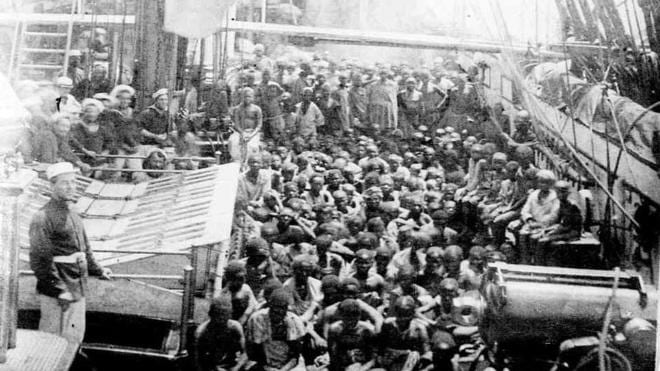
This seminar took place on April 20 2018 at Harvard University.
Speakers:
- Marial Iglesias Utset, Afro-Latin American Research Institute at Harvard University
- Manuel Barcia, University of Leeds
Moderator:
- Alejandro de la Fuente, Robert Woods Bliss Professor of Latin American History and Economics, Professor of African and African American Studies and of History, Harvard University.
Of the almost one million slaves who ended their lives in Cuba, more than a half were illegally introduced after 1820, contravening the treaty that Spain had signed with Great Britain to abolish the traffic. In this phase, transnational networks of illegal traffickers drew on capital, ships, and merchandise from all parts of the Atlantic world to smuggle Africans into Cuba. We will address the transnational character of the slave trade to Cuba, through a case study: the joint venture between J. Ormond, an Euro-African chief from River Pongo, Guinea; E. Joseph, an Englishman with a slave factory in Pongo and a coffee plantation in Matanzas; and the Italian-French cosmopolitan slave trader Theodore Canot. In the 1830s these traffickers smuggled hundreds of slaves into Cuba in partnership with merchants and planters in Havana and Matanzas.
Manuel Barcia is Professor of Latin American History at the University of Leeds, UK. He’s the author of three books and numerous articles on the history of slavery and the slave trade in the nineeteenth century Atlantic world. He’s the editor of Atlantic Studies (Routledge), the leading journal for the history of the Atlantic world, and a non-resident fellow at the Harvard University Hutchins Center.
Marial Iglesias Utset is a Visiting Research Scholar at the Afro-Latin American Research Institute. Her book Las metáforas del cambio en la vida cotidiana, a history of everyday life in Cuba during the US military occupation (1898-1902), has received several prizes, including the Clarence H. Haring Prize, awarded by the American Historical Association. Iglesias-Utset has been a Visiting Fellow at the Institute for the Humanities at the University of Michigan and a Long-term Research Fellow at the John Carter Brown Library.
